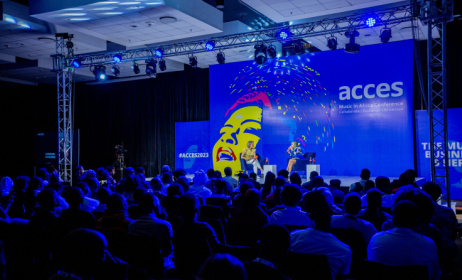Call for papers: Music and dance research in East Africa
The French Institute for Research in Africa (IFRA Nairobi) and the Technical University of Kenya (TUK) are calling for papers and contributions that critically interrogate issues concerning the creation (composition and choreography), tradition, innovation and appropriation in music and dance. The papers will be presented at a conference in Nairobi on 12 and 13 October.
 Dancers from Kenya. Photo: www.starlink-travel.com
Dancers from Kenya. Photo: www.starlink-travel.com
In order to affirm the importance of academic work on the topic of performing arts and the benefits of such work, IFRA and TUK are organizing a regional conference with the goal of assembling researchers, students, artists and others interested in music and dance research in the region. This event is expected to act as a forum for discussion and exchanging ideas to facilitate networking between researchers in the region, as well as to encourage young scholars and students in the field.
The general framework for the conference is the inclusion of music and/or dance as a topic of study within the social sciences, including the construction of the state, national and ethnic identities, regional integration, political and social activism, heritage creation and preservation, cultural tourism and development studies. This conference is also expected to lead to the publication of a journal.
In the long run, IFRA and TUK hope that the conference can lead to the establishment of a permanent research group on musical and kinaesthetic practices (and performance) in East Africa, as well as the initiation of a Franco-Kenyan cultural research network.
Researchers from the East African region and elsewhere are invited to submit abstracts of not more than 300 words (plus five key words and a bibliography). Interested participants can focus on any of the following issues:
- Ethnic, regional and national identity issues and their expression in music and dance;
- Music and dance heritage, defined as a process under construction and the key actors of that process on different levels (local, national and international);
- Property and appropriation in “indigenous” music and dances;
- Historical and contemporary power relations within the music and dance milieu;
- Studies of cultural policies from the music and dance point of view;
- Activism and social development through performing arts;
- Gender and generational issues expressed in music and dance;
- Transmission of knowledge and music education;
- The role of the media and the archive in generating visibility and invisibility for music and dance;
- Methodological issues in music and dance research.
Interested participants should email their abstracts or any queries to the conference coordinator, Miss Kiiru, at seminars@ifra-nairobi.net by 28 May. Selected participants must submit their full papers of not more than 3000 words by 1 September. For more information visit the IFRA website.
























Commentaires
s'identifier or register to post comments